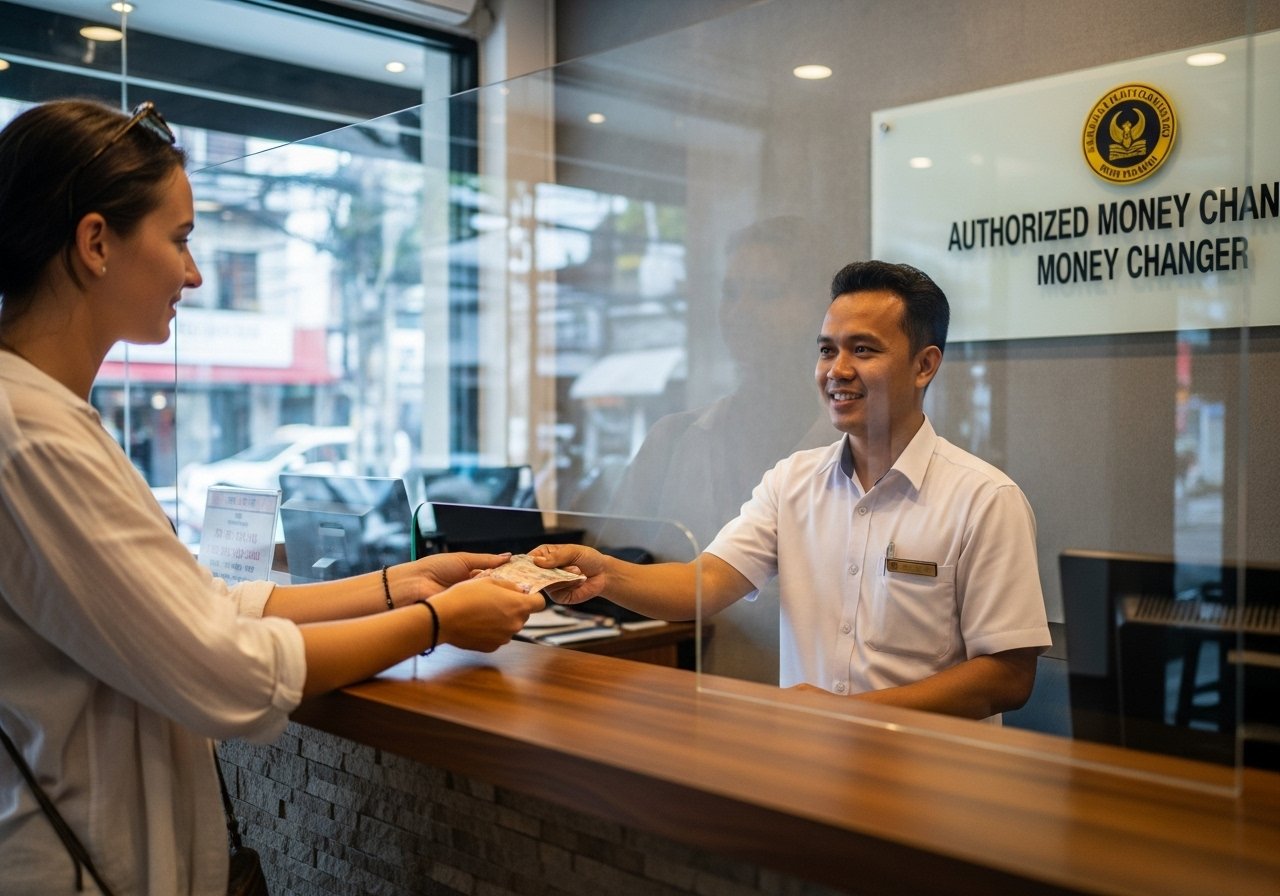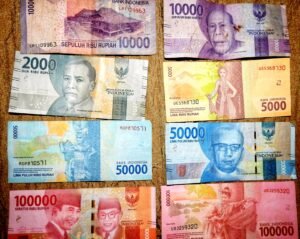Bali’s Official Currency: Indonesian Rupiah Explained
The official currency of Bali is the Indonesian Rupiah (IDR), a vibrant and colorful monetary system that can initially feel overwhelming for first-time visitors due to its high numerical values. Travelers will need to get comfortable with banknotes that range from thousands to hundreds of thousands, making every transaction an exercise in careful calculation.
Understanding Indonesian Rupiah (IDR)
Official Currency Status and Denominations
The Indonesian Rupiah is the sole legal tender throughout Indonesia, including Bali. As of 2025, you’ll encounter the following denominations:
- Banknotes:
- 1,000 IDR (rare, almost obsolete)
- 2,000 IDR (uncommon)
- 5,000 IDR
- 10,000 IDR
- 20,000 IDR
- 50,000 IDR
- 100,000 IDR (most commonly used by tourists)
- Coins:
- 100 IDR
- 500 IDR
- 1,000 IDR
💡 Pro Tip: Always carry smaller denominations for street vendors, local markets, and taxis. Many small businesses struggle with making change for large bills.
Security Features to Check
Indonesian Rupiah banknotes have sophisticated anti-counterfeiting measures:
- Watermarks visible when held against light
- Holographic security strips
- Raised printing texture
- Color-shifting ink on larger denominations
- Micro-text embedded in design elements
Counterfeit Warning
Bali, like many tourist destinations, can occasionally see counterfeit currency circulating. Protect yourself by:
- Examining notes in good light
- Checking for proper watermarks
- Accepting change carefully
- Using official bank ATMs
- Getting currency from reputable exchange centers
Current Exchange Rates and Conversion
2025 Exchange Rate Snapshot
| Currency | Approximate 2025 Rate |
|---|---|
| 1 EUR | 19,400 IDR |
| 1 USD | 16,700 IDR |
| 1 GBP | 20,100 IDR |
Recommended Rate Checking Methods
- Mobile Apps:
- XE Currency
- Wise
- Google Finance
- Bloomberg Currency Converter
- Real-Time Tips:
- Check rates daily before travel
- Compare bank and local exchange rates
- Consider slight variations between online and physical exchanges
💡 Pro Tip: For the best exchange rates, use bank ATMs or official money changers in tourist areas like Seminyak, Ubud, and Kuta. Avoid street exchangers.
⚠️ CURRENCY EXCHANGE SECURITY: ONLY USE LEGAL CENTERS!
Exchanging money in Bali requires extra caution. To guarantee an honest transaction and avoid fraud, strictly follow these rules:
- Absolutely avoid street (unofficial) money changers. Small, unlisted spots or individuals who offer a “better rate” on the street are notorious for using sleight of hand during counting, and tourists are constantly cheated and lose money. The slight difference in the exchange rate is not worth the risk.
- Always use only official, licensed, and legal exchange centers (Authorized Money Changers) or banking institutions. Choose locations that have clear signs and a license, such as major companies like PT. Central Kuta or other trusted operators.
- Do not get distracted while the money is being counted. Always stand directly in front of the cashier, check the rate on the official board, and count the money yourself before stepping away from the counter. Once you step away, complaints are usually not accepted.
Conversion Quick Guide:
- 10 EUR ≈ 195,000 IDR
- 50 USD ≈ 837,000 IDR
- 100 GBP ≈ 2,100,000 IDR
By understanding the Indonesian Rupiah’s nuances, you’ll navigate Bali’s financial landscape confidently and avoid common tourist monetary pitfalls.
Frequently Asked Questions About Money in Bali
Q: What is the official currency in Bali?
A: The official currency in Bali is the Indonesian Rupiah (IDR). This currency is used for all local transactions, including shopping, dining, transportation, and accommodation. Visitors should be prepared to exchange their home currency for Indonesian Rupiah upon arrival, as it is the primary method of payment throughout the island.
Q: Can I pay in Euros or other foreign currencies in Bali?
A: While the Indonesian Rupiah is the primary currency, some tourist areas and high-end establishments might accept Euros or US Dollars. However, it’s strongly recommended to have local currency for most transactions. Exchange rates at hotels and tourist spots might not be as favorable, so it’s best to exchange money at official currency exchanges or withdraw from ATMs.
Q: What are the best payment methods in Bali?
A: Bali offers multiple payment options including cash (recommended for small transactions), credit/debit cards in larger establishments, and digital payment platforms. International credit cards like Visa and Mastercard are widely accepted in hotels, restaurants, and shopping centers. However, always carry some cash for local markets, street vendors, and more remote areas.
Q: How much money should I bring to Bali?
A: The budget for Bali varies depending on your travel style. Budget travelers can manage with $30-50 per day, mid-range travelers might spend $50-100 daily, and luxury travelers could spend $100-300. A typical week-long trip might require approximately $500-1000, covering accommodation, food, transportation, and activities.
Q: Is Bali an expensive destination?
A: Bali is generally considered an affordable destination for international travelers. Local food, transportation, and accommodation can be very cheap, with meals costing as little as $2-5 and budget accommodations available from $10-30 per night. However, prices in tourist areas like Seminyak or Canggu can be significantly higher.
Q: Where can I exchange money in Bali?
A: Money can be exchanged at banks, official currency exchange offices, some hotels, and licensed money changers. Always choose reputable exchanges and count your money carefully. ATMs are widely available in tourist areas, offering another convenient method to obtain local currency with reasonable exchange rates.
Q: What is the current exchange rate for Euros to Indonesian Rupiah?
A: Exchange rates fluctuate daily, but approximately 1 Euro is equivalent to around 18,500-19,500 Indonesian Rupiah. For the most accurate and current rate, check online currency converters or consult local banks and exchange offices upon arrival in Bali.





One thought on “Money in Bali 2025: Complete Currency & Payment Guide”
Comments are closed.